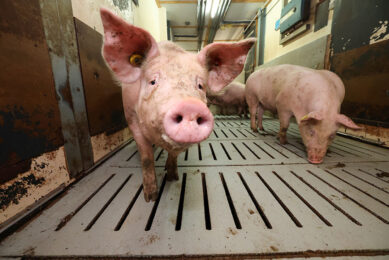Research: Reporting greenhouse gas emissions benefits business
New research has found that British businesses voluntarily reporting their greenhouse gas emissions experience benefits such as cost savings, improved green credentials, and better relations with investors and customers.
Research found that businesses who measured their emissions were using the results to set targets for reduction and also in a much broader context to influence wider business plans.
©
Businesses who participated in the research said that the emission reports triggered board level interest in environmental issues and drove environmental behaviour change across the organisation, which had beneficial results for the company.
©
Emission reports were found to have a particularly important part to play in communications to investors by helping to demonstrate the businesses’ environmental credentials and encourage investment.
©
Defra today published a report summarising this research to help inform future plans for emission reporting.
Environment Minister Lord Henley said:
©
“I am pleased to see that the many companies already voluntarily involved in reporting GHG emissions are finding the process beneficial to their business and investors. I am also delighted to see that the act of reporting is encouraging attempts to reduce emissions.
©
©“The next steps for Government will be to consider the findings of the report. We’ll be announcing a way forward in early 2011.”
©
The report includes a review of Defra commissioned research by PricewaterhouseCoopers and the Carbon Disclosure Project which found that over half of companies interviewed during the research believed that the GHG reporting led to a net benefit to their business. It helped strengthen their brand in the eyes of investors by providing them with quantifiable data on climate change risks and performance with which to make investment decisions.
©
Chief Scientific Advisor Bob Watson said: “It is encouraging to find that many companies see GHG reporting as beneficial to their business. The emission figures seem to act as a catalyst for other changes within the company resulting in wide ranging benefits for both the environment and the business. “Tackling climate change is something we need to do together so it’s great to see the positive contribution being made by many British companies.”
©
This report will help inform the Government’s decision on whether to make GHG reporting mandatory. An announcement on how the Government intends to proceed will be made in early 2011.
©
Defra has also published today a total carbon footprint of UK central Government from 1990 to 2008. This includes the emissions from sources such as buildings, vehicles and other equipment. For the first time, it also includes the ’embedded emissions’ of the goods and services bought by Government.
©
Central Government activities have produced nearly 1.2 billion tonnes of GHG emissions between 1990 and 2008. In 2008, the carbon footprint of central Government was 64.7 million tonnes of GHG and supply chain emissions were responsible for 77 per cent of this. Central Government accounts for six to seven per cent of the UK carbon footprint.
©
Direct emissions have been falling following recent work to reduce Government’s impact. The Government’s 10 per cent commitment to reducing carbon emissions on its estate is bringing further significant reductions. Further work will take place to consider ways of reducing its supply chain emissions.
©
Source: DEFRA
©
©
©
©











